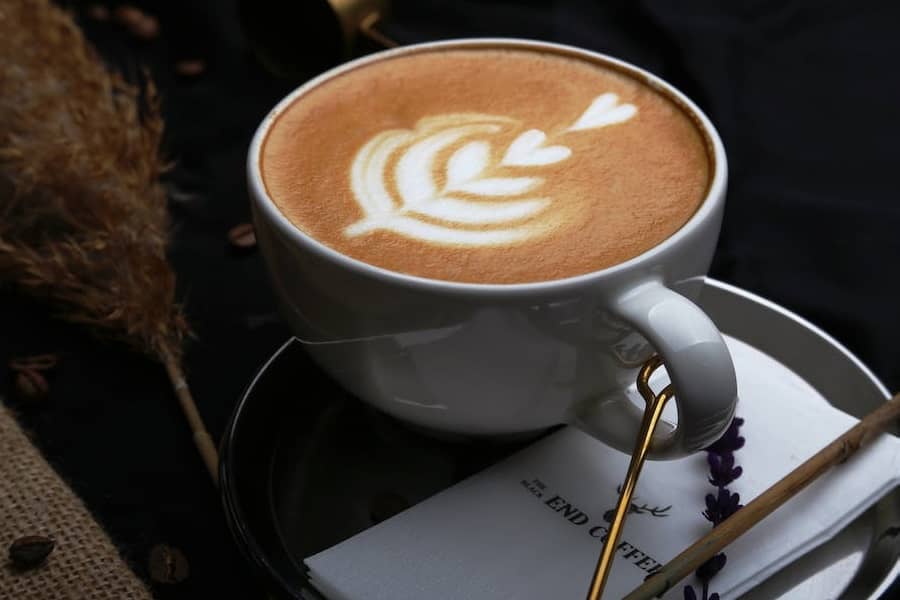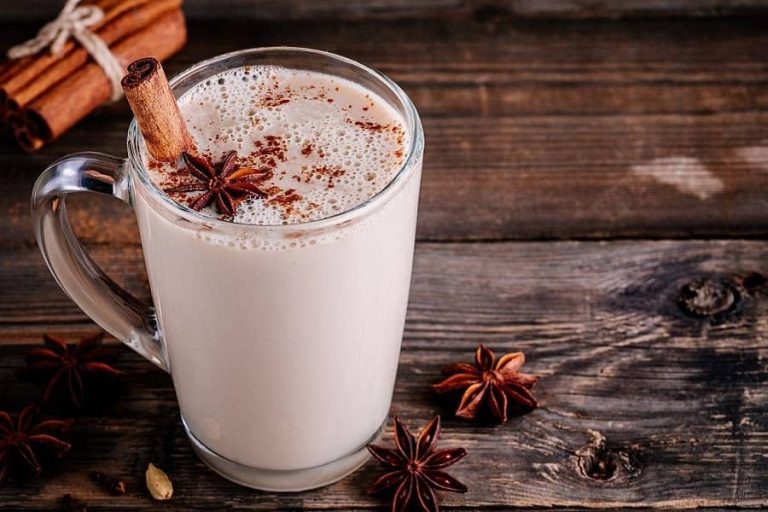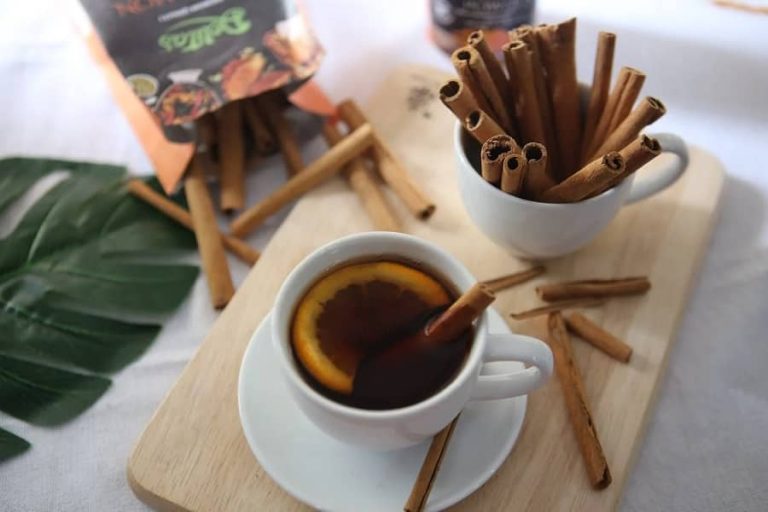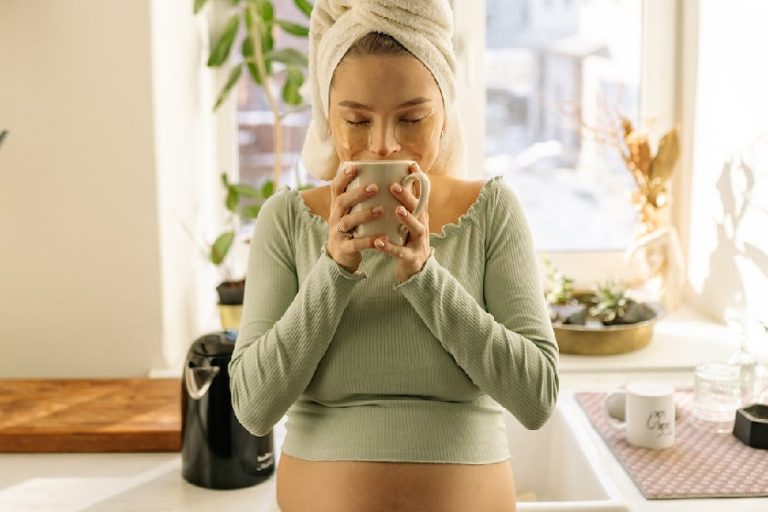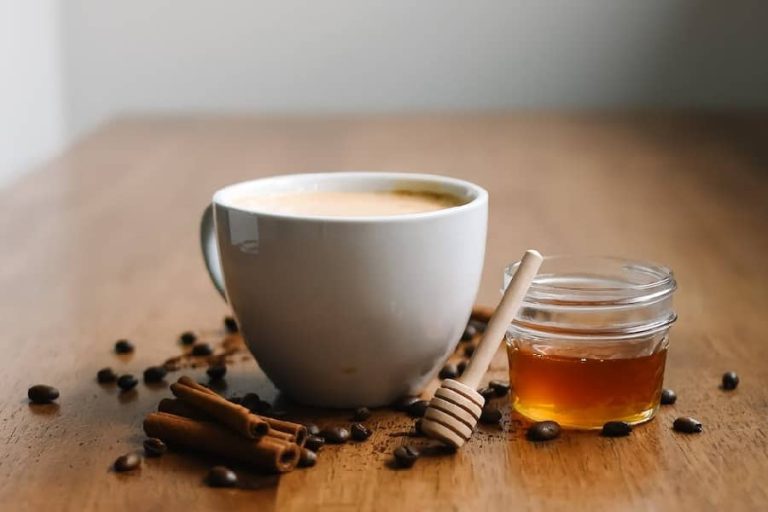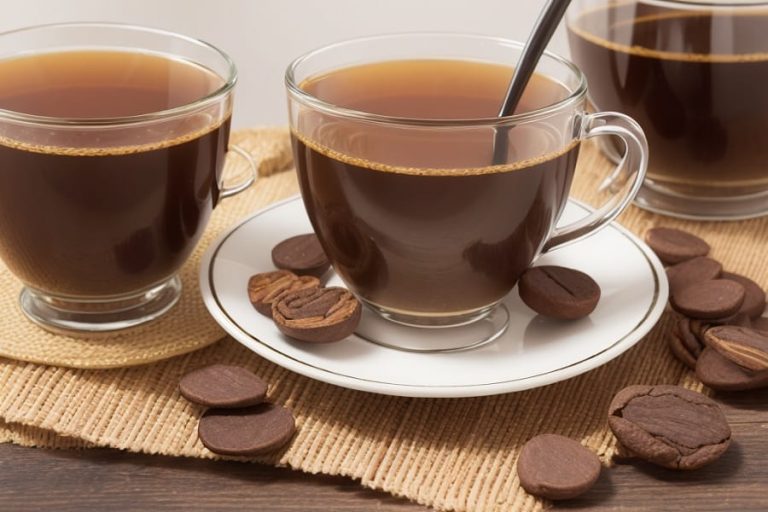Does Chai Tea Have Caffeine?
Yes, chai tea contains caffeine because it is made with black tea, which naturally contains caffeine. The amount of caffeine in chai tea can vary depending on the type of tea blend and how it is prepared. A typical cup of chai tea contains between 25-50mg of caffeine.
Next, we will explore some specific issues related to Caffeine and Chai Tea. The article is quite lengthy, please be patient and read it.
Does vanilla chai tea have caffeine?
Yes, vanilla chai tea typically contains caffeine due to its black tea base. However, the amount of caffeine can vary depending on the specific brand and the amount of tea used in each tea bag or serving.
Does tazo chai tea have caffeine?
Yes, Tazo chai tea contains caffeine because it is made with black tea as a base. The amount of caffeine depends on the specific Tazo chai tea blend and the amount of tea used in each serving. As a general reference, Tazo Classic Chai contains 47-55 mg of caffeine per 8-ounce cup, which is similar to the amount found in a typical cup of black tea.
Does twinings chai tea have caffeine?
Yes, Twinings chai tea contains caffeine since it is made with black tea as a base ingredient. The amount of caffeine in Twinings chai tea can vary depending on the specific blend and the amount of tea used in each tea bag or serving. As a general reference, a typical cup of Twinings Chai tea contains around 40-50 mg of caffeine per 8-ounce cup.
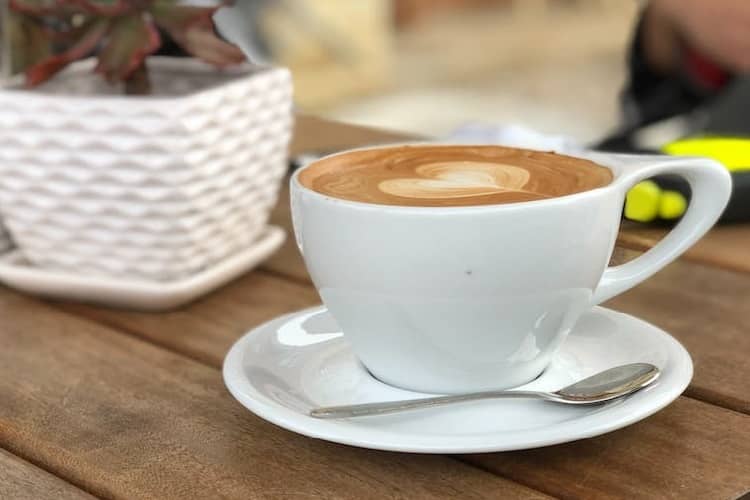
Is caffeine in chai tea addictive?
Caffeine is a widely used stimulant and is found in a variety of products, including tea, coffee, and chocolate. Chai tea, which traditionally contains black tea, also contains caffeine, but the amount can vary depending on factors such as the brewing time and method and the type and quality of tea leaves used.
While caffeine itself is not considered addictive in the same way that drugs like opioids or nicotine are, it can be habit-forming. This is because caffeine stimulates the central nervous system, leading to feelings of alertness and energy. Over time, the body can become accustomed to the effects of caffeine, and regular users may experience withdrawal symptoms if they suddenly stop consuming it.
Withdrawal symptoms can include headaches, fatigue, and irritability and can vary in severity depending on the amount of caffeine a person typically consumes and how long they have been consuming it. However, it’s important to note that not everyone who regularly consumes caffeine will experience withdrawal symptoms if they stop.
In conclusion, while caffeine in chai tea is not necessarily addictive in the same way as drugs like opioids or nicotine, it can be habit-forming, and regular users may experience withdrawal symptoms if they suddenly stop consuming it. It’s important to be mindful of caffeine consumption and to monitor any side effects or withdrawal symptoms to ensure the safety and wellbeing of individuals who choose to enjoy chai tea as part of their daily routine.
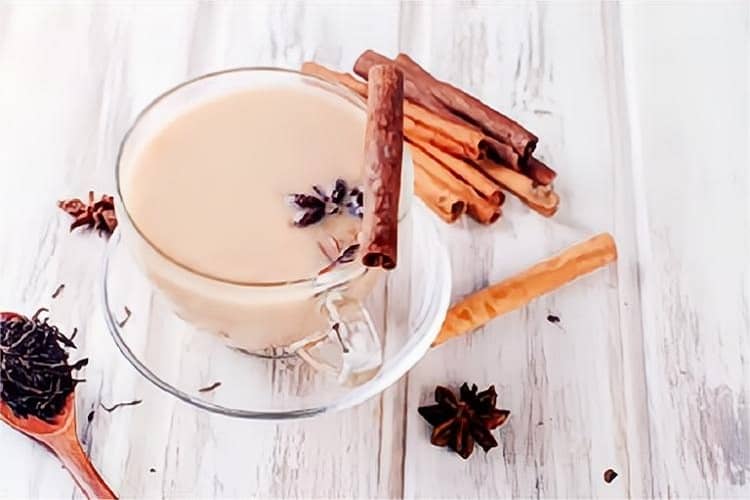
Is chai tea high in caffeine?
Chai tea is a popular beverage known for its blend of warm spices and black tea. It has been enjoyed for centuries in India and other parts of the world, and its popularity has grown significantly in recent years as the beverage has become more widely available globally. One of the questions that people often have about chai tea is whether it is high in caffeine, and if so, how much.
The answer to this question is complex, as the caffeine content of chai tea can vary significantly depending on a variety of factors. For example, the amount of caffeine in chai tea can depend on the specific blend of tea and spices used, as well as the brewing method and length of time that the tea is steeped. In general, chai tea is made with black tea, which contains caffeine by default. However, some blends may contain less black tea and therefore less caffeine, while others may contain additional sources of caffeine like green tea or yerba mate.
It is also important to note that the caffeine content of chai tea is generally lower than that of other caffeinated beverages like coffee or energy drinks. On average, a cup of chai tea contains between 25-50mg of caffeine, while a cup of coffee can contain anywhere from 95-200mg of caffeine, depending on the brew strength and serving size.
In terms of health considerations, moderate caffeine intake is generally considered safe for most people. However, excessive caffeine consumption can lead to health issues like anxiety, insomnia, and digestive problems. Additionally, certain populations like children and pregnant women may be more sensitive to caffeine and may need to limit their intake accordingly.
Overall, while chai tea does contain caffeine, it is not necessarily high in caffeine compared to other caffeinated beverages. The amount of caffeine in chai tea can vary based on a variety of factors, and it is generally considered safe to consume in moderation for most people. If you are concerned about your caffeine intake, it may be helpful to check with your healthcare provider to determine what level of caffeine intake is appropriate for your individual needs and concerns.
Does decaf chai tea exist?
Yes, decaf chai tea does exist, and it is a great option for those who enjoy the flavor of chai tea but want to avoid or limit their caffeine intake. Decaf chai tea is made from the same blend of spices and herbs as regular chai tea, but with the addition of decaffeinated black tea.
Decaf chai tea is made by removing most, but not all, of the caffeine from the black tea leaves that are used to make the tea. Different companies may use different methods to decaffeinate their tea, but the most common method involves using carbon dioxide to extract the caffeine. This process helps to preserve the flavor of the tea leaves and the other spices and herbs that are used, making decaf chai tea just as flavorful as regular chai tea.
One thing to note about decaf chai tea is that it still contains a small amount of caffeine. While the amount of caffeine varies depending on the brand and the brewing method used, most decaf chai teas contain around 2-5mg of caffeine per cup. This is significantly less than the amount found in regular chai tea or coffee, making decaf chai tea a good option for those who are sensitive to caffeine.
In conclusion, decaf chai tea is a great option for those who enjoy the flavor of chai tea but want to avoid or limit their caffeine intake. It is made using the same blend of spices and herbs as regular chai tea, but with decaffeinated black tea leaves. While it does still contain a small amount of caffeine, it is much lower than the amount found in regular chai tea or coffee.
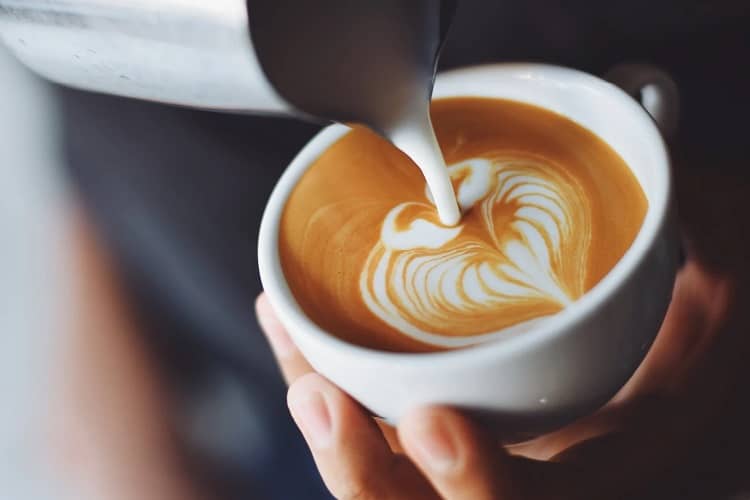
Is chai tea a good substitute for coffee?
Chai tea can be a good substitute for coffee for those who are looking for a warm and flavorful beverage that contains less caffeine. While coffee is well-known for its high caffeine content, chai tea contains moderate amounts of caffeine, usually less than coffee, making it a better option for those who are sensitive to caffeine.
Another benefit of chai tea as a coffee substitute is that it contains a unique blend of spices and herbs that can provide a variety of potential health benefits. For example, chai tea may contain ingredients like cinnamon and ginger, which have anti-inflammatory and antioxidant properties. Black tea, which is often used as a base for chai tea, is also known to contain polyphenols that have been linked to a reduced risk of certain health conditions like heart disease and stroke.
Furthermore, chai tea can be customized to individual preferences by adjusting the amount and type of spices used in the blend. For example, some people may enjoy a stronger cinnamon flavor, while others may prefer a more subtle hint of ginger. Additionally, chai tea can be prepared in a variety of ways, such as hot or iced, with milk or without, and with or without sweetener, making it a versatile choice for those who enjoy experimenting with different flavors and preparations.
In conclusion, chai tea can be a good substitute for coffee for those who are looking for a warm, flavorful beverage with less caffeine. Chai tea contains a unique blend of herbs and spices that can provide various potential health benefits, and it can also be customized to individual preferences. While coffee and chai tea have their own unique characteristics, chai tea can certainly serve as a tasty and healthy alternative to coffee.
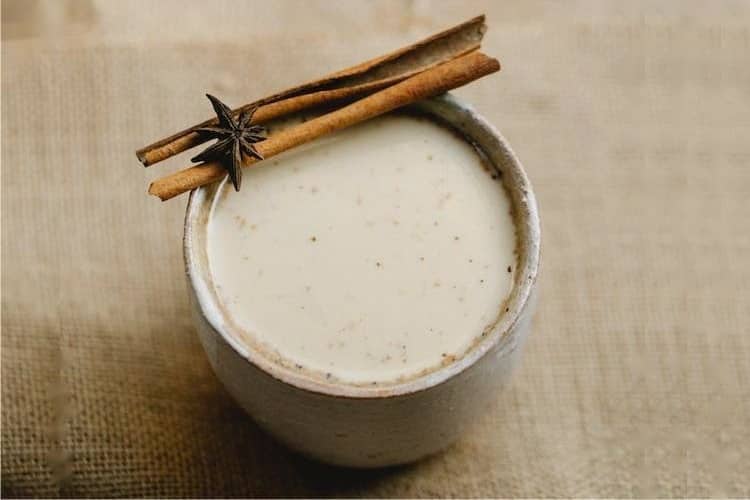
Can you make chai tea without caffeine?
Yes, you can definitely make chai tea without caffeine by using alternative base teas or by omitting tea entirely. Chai tea is traditionally made with black tea, which contains caffeine, but there are many ways to modify the recipe to make a caffeine-free version of this tasty beverage.
One popular way to make caffeine-free chai tea is to use herbal tea, such as rooibos or chamomile, as the base. Rooibos tea has a rich, earthy flavor and pairs well with chai spices like ginger, cinnamon, and cardamom. Chamomile tea has a mild, soothing flavor and can provide a calming effect when enjoyed as part of a chai blend.
Another way to make caffeine-free chai is to use a combination of spices and milk without any added tea. Simply simmer the spices in milk and sweetener for a few minutes to create a creamy, flavorful beverage that is caffeine-free. This option is great for those who are looking to reduce their caffeine intake or who want to enjoy chai tea in the evening without worrying about keeping themselves up all night.
In conclusion, there are many ways to make chai tea without caffeine, including using alternative base teas like herbal teas or by omitting tea entirely. Experiment with different spices, milks, and sweeteners to create a custom chai blend that suits your taste preferences and caffeine requirements. Whether you’re looking for a caffeine-free alternative to traditional chai tea or simply looking to mix up your chai routine, these options are all worth exploring.
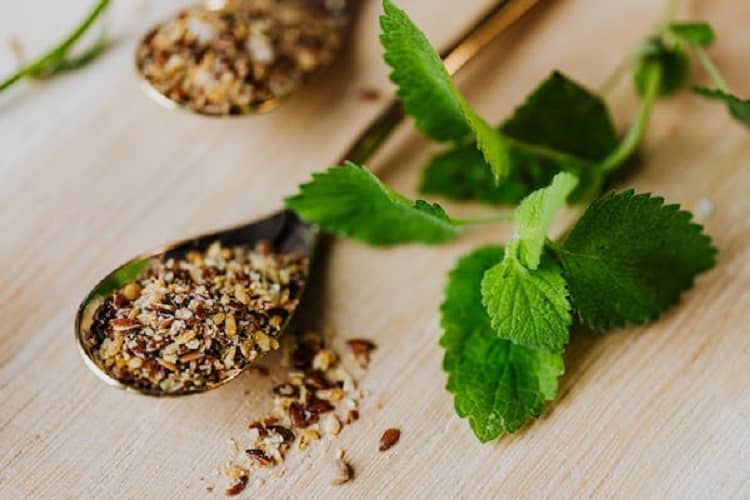
Are there any health risks associated with caffeine in chai tea?
While caffeine can have a number of positive effects on the body, including increasing alertness, improving short-term memory and reaction time, and boosting metabolism, there are some potential health risks associated with consuming too much caffeine, including in chai tea.
One of the primary risks associated with caffeine consumption is the potential for negative impact on sleep quality and quantity. Caffeine can interfere with the body’s natural circadian rhythm, making it difficult to fall asleep or stay asleep. It can also increase the frequency of urination, disrupting sleep even further. For those who have difficulty sleeping or who already suffer from sleep disturbances, consuming caffeine, even in the form of chai tea, may exacerbate these issues.
Another potential health risk associated with caffeine consumption is increased heart rate and blood pressure. Caffeine stimulates the nervous system, which can lead to increased heart rate and blood pressure, particularly in those who are sensitive or who consume large amounts of caffeine. This can be especially dangerous for those with pre-existing heart conditions or high blood pressure.
In conclusion, while caffeine can have some positive effects on the body, there are potential health risks associated with consuming too much, including impacts on sleep quality and quantity and increased heart rate and blood pressure. While chai tea made with traditional black tea does contain caffeine, there are many options for making a caffeine-free version of this popular beverage using alternative base teas or omitting the tea entirely. Ultimately, it’s important to listen to your body and monitor your caffeine intake to ensure that you’re staying within safe limits.
How does brewing time impact the amount of caffeine in chai tea?
Brewing time and temperature are known to have an impact on the amount of caffeine that is extracted from tea leaves. As a result, the brewing time of chai tea can impact the amount of caffeine that is present in the final drink.
In general, the longer you steep the tea leaves, the more caffeine will be extracted. Therefore, if you want to reduce the amount of caffeine in your chai tea, avoid steeping the tea for a long period of time. Traditionally, black tea is used as the base for chai, and it is recommended to steep for 3-5 minutes. If you prefer a weaker brew with less caffeine, steep the tea for about 2 minutes. Also, It is suggested to use cooler water to brew the tea to lessen caffeine extraction.
It is worth noting that the amount of caffeine in chai tea can also depend on the type and quality of tea used. For example, a high-quality loose-leaf black tea may contain more caffeine than a low-quality tea bag. Again, it is recommended to monitor steeping times depending on the grade and quality of the tea used.
It is also important to note that some chai blends may use other caffeinated ingredients like cocoa powder or yerba mate to enhance the flavour profile. These ingredients in combination with the black tea can contribute to the overall caffeine content of chai tea.
In conclusion, brewing time can impact the amount of caffeine extracted from tea leaves used in making chai tea. It is recommended to steep for a shorter amount of time to reduce caffeine content. However, the amount of caffeine also depends on the quality and type of tea leaves used in the blend and if other ingredients like cocoa powder or yerba mate have been used.
FAQ: Caffeine in Chai Tea
Caffeine free chai tea
While chai tea traditionally contains caffeine because it is made with black tea, there are caffeine-free chai tea options available in the market. These usually replace the black tea base with herbal teas or other caffeine-free ingredients. Some examples of ingredients that are commonly used to make caffeine-free chai tea include rooibos, peppermint, ginger, and cinnamon. You can typically find these caffeine-free chai tea blends in health food stores or online. It’s always a good idea to check the ingredients list on the packaging to confirm whether the chai tea blend is indeed caffeine-free.
How do I know how much caffeine is in my chai tea?
The amount of caffeine in your chai tea can vary depending on the specific blend and how it is prepared. You can check the label or ask the retailer or barista for more information. Read more How Much Caffeine in a Chai Tea? .
Is caffeine in chai tea different from caffeine in coffee?
Caffeine in chai tea and coffee is the same molecule, but the amount and effect on the body may be different.
Does chai tea have more or less caffeine than coffee?
Chai tea typically contains less caffeine than coffee.
Will chai tea keep me up at night?
If you are sensitive to caffeine, drinking chai tea in the evening or at night may impact your sleep.
Is it safe to drink chai tea during pregnancy?
Moderate caffeine intake is generally considered safe during pregnancy but it’s best to consult with a healthcare provider for specific recommendations. More information about Is Chai Tea Safe During Pregnancy? .
Does the caffeine content of chai tea change if it’s iced?
The caffeine content of iced chai tea should be the same as that of hot chai tea, assuming the same ingredients are used and the tea is brewed for the same amount of time.
Are there any natural ways to reduce the caffeine content in chai tea?
Using a decaf tea may be a natural way to reduce the caffeine content of your chai tea.
Can I add more caffeine to my chai tea?
You could add more caffeine to your chai tea by mixing in an energy drink or caffeine supplement, but this may not be a healthy option for everyone.
Is there any way to extract the caffeine from chai tea?
It is technically possible to extract caffeine from tea, but it would require specialized equipment and likely would not be practical for home use.
Does soy milk in chai tea make the caffeine more potent?
Soy milk is not known to impact the efficacy or potency of caffeine.
Is caffeine in chai tea harmful to kids?
Moderate caffeine intake is generally considered safe for kids and teens, but it’s best to consult with a healthcare provider for specific recommendations. It is generally recommended that kids and teens consume caffeine in moderation.

